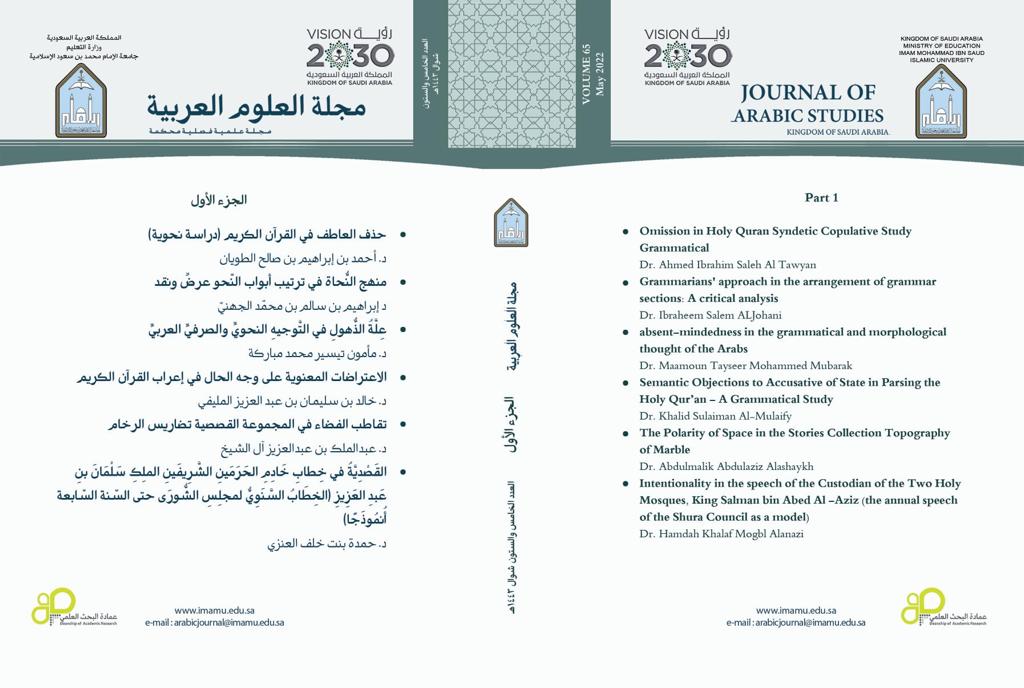Semantic Objections to Accusative of State in Parsing the Holy Qur’an - A Grammatical Study
Keywords:
Arabic Syntax, Parsing of Qur’an, Accusative of State, Adverb of Manner, Semantic Objections.Abstract
One of the most important ways of caring for the Holy Qur’an is to parse it by analyzing the texts of its verses linguistically to reach its meanings. This was evident in the Holy Qur’an’s parsing books that include all its elements of words and sentences.
This parsing effort was accompanied by a critical effort, in terms of rules and meaning, as they are the two pillars of parsing analysis. Therefore, this research has been made to monitor some of that effort by collecting the semantic objections to one of the parsing forms. IT is (the accusative of State), and studying it analytically.
The importance of this research is that it focuses on one of the two pillars of the parsing analysis. It is the “meaning” by studying the semantic objections. In addition, its subject lies in the first aspect from which the objection to the parser comes. It is that “It takes into account what is required by the apparent rules and does not take into account the meaning,” and it is a way to scrutinize parsing books to exclude parsing forms that are not good or not permissible to be used in parsing the Holy Qur’an.
This Research has led to results, including:
- The semantic objections to parsing forms of the Holy Qur’an, even with their multiple fields of interpretation, context, etc., are inseparable from the grammatical function meaning of the parsing form.
- The circumstantial clause is the most targeted accusative of State type to be objected to.
-Among the most important characteristics of the semantic accusative of State that have been the subject of objections: are transistorizes and time simultaneousness.
-The effects of the semantic objections to the addressed the accusative of State include: following up objections by answering them and refuting the problems they contained, and clarifying words in a way that is different from their apparent meaning by interpretation.
-The ways of refuting the semantic objections include: interpreting the verse to another interpretation by which the objection is refuted and diverting the accusative of State to the permanence.




